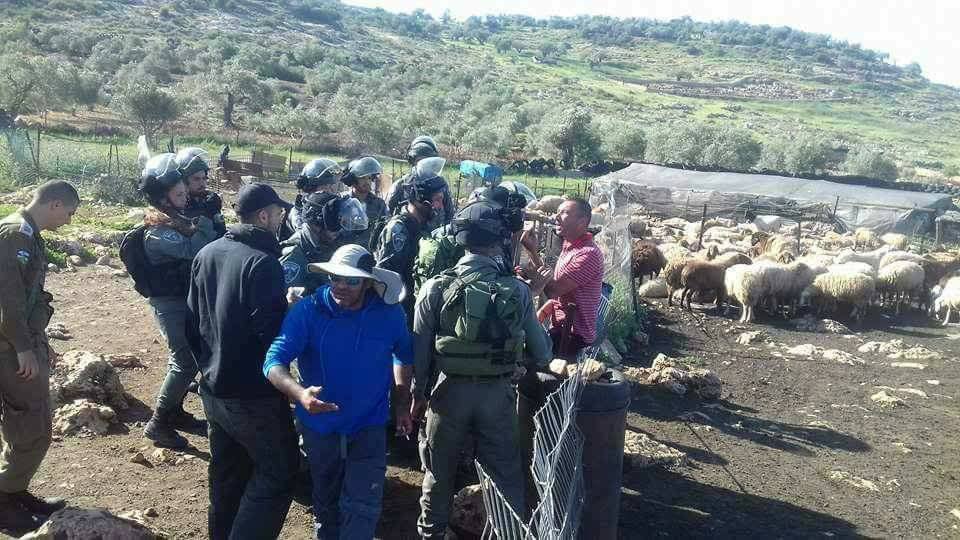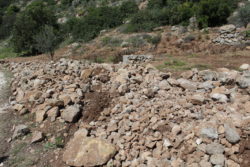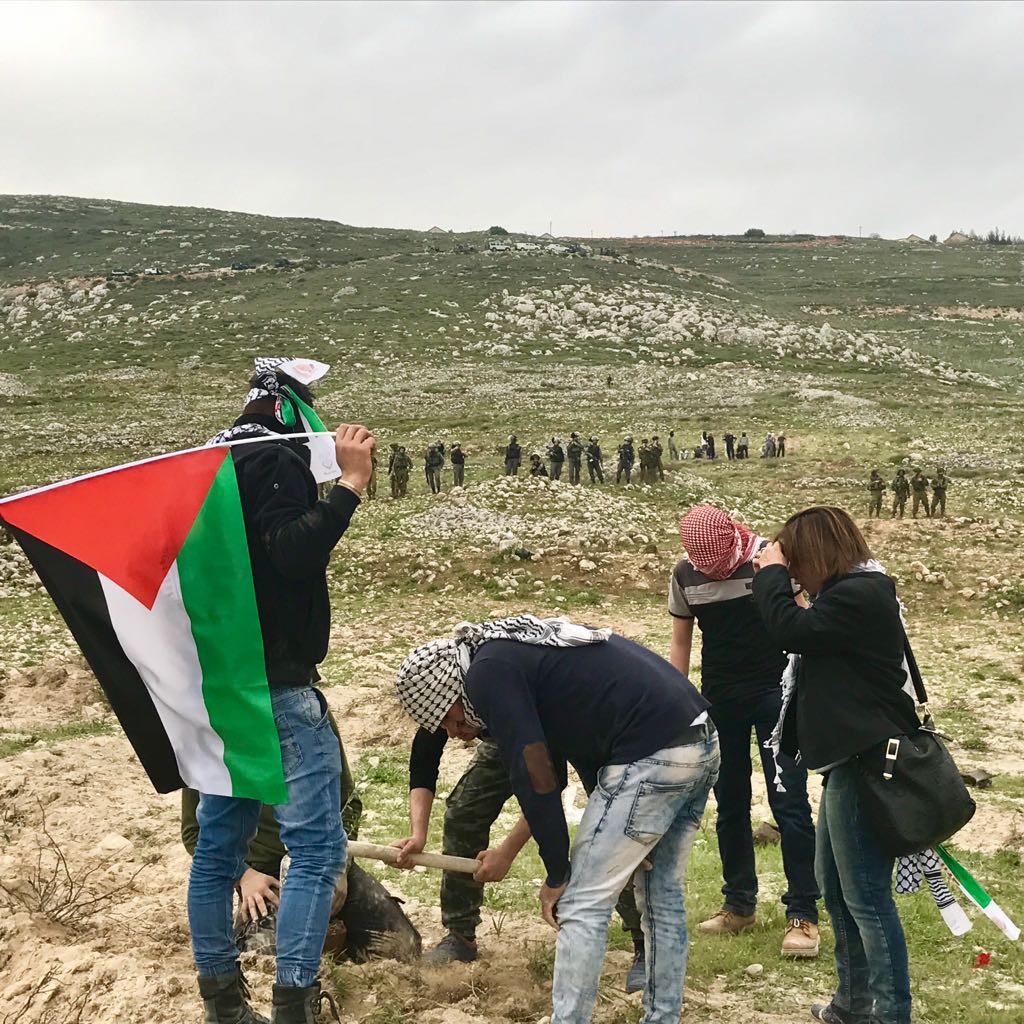Tag: Farmers
-
Israeli forces demolish Palestinian farm in Abu al-Ra’eesh, west of Salfit
5th April 2017 | International Solidarity Movement, Ramallah team | Abu al-Ra’eesh, occupied Palestine On the morning of April 5, 2017, the Israeli occupation forces demolished residential tents and six sheep pens in the area of Abu al-Ra’eesh, southwest of Dirbolut, west of Salfit. The structures belonged to the Shheibar family and were located between the…
-
Wadi Qana’s Palestinian farmers endure another mass tree uprooting
5th April 2017 | International Solidarity Movement, al-Khalil team | Hebron, occupied Palestine Just days after Palestinians commemorated Land Day, a day which marks the struggle against the Israeli government’s expropriation of Palestinian land, farmers of Wadi Qana endured another mass uprooting and theft of their trees. Speaking from his home in the Salfit district…
-
Madama village marks Land Day 2017 under heavy military violence
31st March 2017 | International Solidarity Movement, Ramallah team | Madama, occupied Palestine Thursday the 30th of March was Land Day, a day in which Palestinians and their supporters commemorate the loss of huge amounts of land, stolen by the Zionist colonisers in 1976. In Madama village, in the Nablus area, around 300 Palestinian activists…



